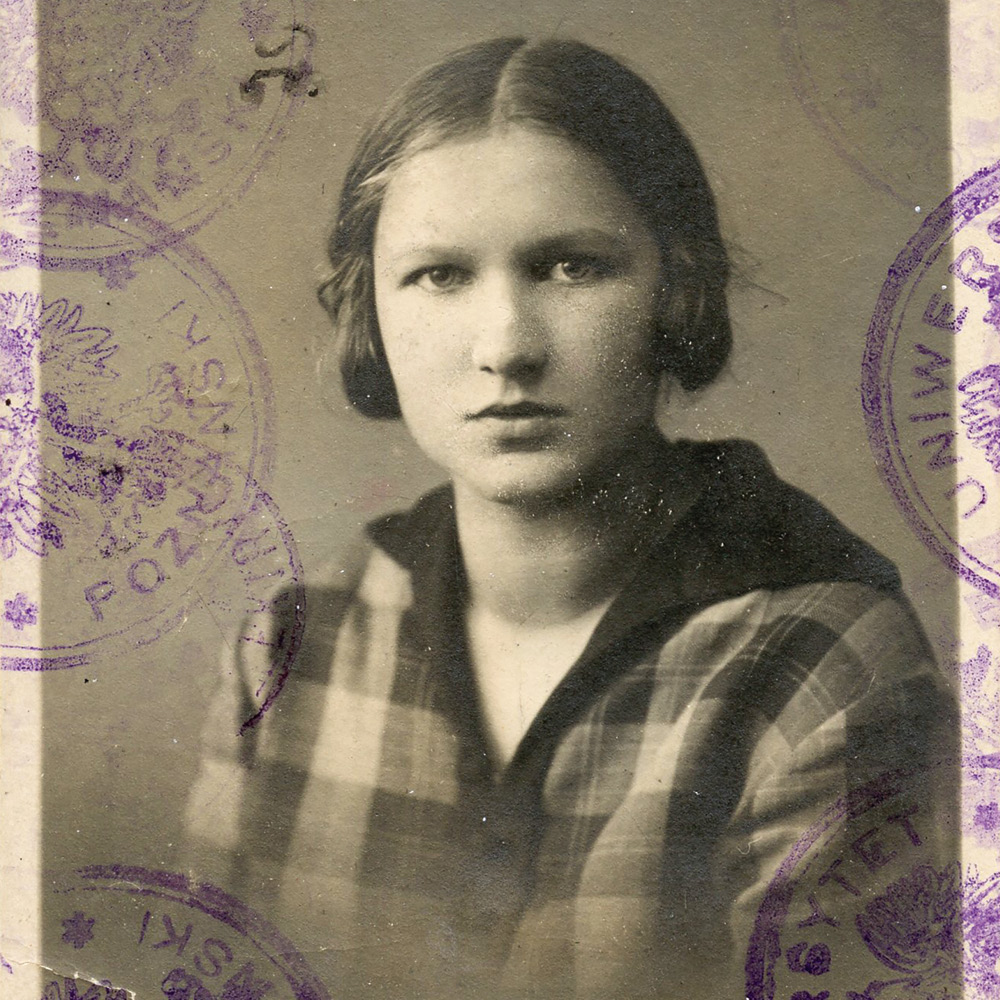In May 1942, Agent Zo was in the home stretch after a long and risky mission that had placed her in Berlin, at the heart of Nazi Germany. As usual, she picked up a small stone and threw it at the second-floor window of her sister’s apartment in a grimy industrial city in occupied Poland, south of Warsaw. But no one in the flat turned on a light, the agreed signal. She threw another. Nothing happened.
With a mounting sense of unease, she knocked at the door of a first-floor apartment, and a pallid face appeared. The terrified neighbor told her that the Gestapo had appeared two days ago and arrested the occupants. “Get away, by God. They are here!” she urged.
Clare Mulley’s Agent Zo is the powerful, gripping and at times brutal true story of Polish resistance fighter Elżbieta Zawacka. Codenamed Zo, she crossed borders in occupied Europe more than a hundred times. She was the only woman to carry communications from the Polish Home Army to the government in exile in London, later qualifying as a member of the elite Polish Special Forces, the “Silent Unseen.”
For Mulley, Agent Zo is much more than just a story about one resistance fighter; it tells a wider story of Poland’s fight for survival, on a scale — and at a level of brutality — that the West often overlooks. A vicious fight began when Warsaw surrendered to Nazi Germany on September 27, 1939. By early 1942, Poles had created the 440,000-strong Polish Home Army, one of the largest such resistance armies in Europe. According to Mulley, it was the source of almost 50 percent of Allied military intelligence.
The book’s genesis comes from long interviews with Zo recorded by Polish journalist Andrzej Drzycimski, who had planned to write her biography, but passed the tapes to Mulley. The result is largely a straightforward chronological account of a dramatic life.
Blonde, blue-eyed Elżbieta Zawacka was the seventh of eight children born to a family in German Silesia; after World War One their town belonged to Poland. She grew up fluent in Polish and German, a skill that would later prove useful in her work as a spy. In the years after Poland’s independence in 1918, Zawacka studied mathematics at university — her tutor was one of the Polish mathematicians who later broke the Nazis’ Enigma code — and joined the Polish Women’s Military Training (PWK) organization, though women weren’t admitted into the regular army.
Through the PWK, Zawacka learned how to drive an ambulance, patch up wounded soldiers in the field and shoot down aircraft. In an intriguing subplot, Mulley hints that she even fell in love with one of her fellow cadets, Zofia Grzegorzewska, who gave her the confidence to fight and lead. Weeks before the German invasion in September 1939, Zofia was “slashed in two” by a train accident — an “accident” that Zawacka blamed on German agents provocateurs; tragedy is never far away in Agent Zo. Her codename, suggests Mulley, was adopted as a homage to her lost love.
Poland fell within a month of the invasion, and those who wanted to resist the Nazis had the choice of either fleeing to join the Polish armed forces regrouping in France (later Britain) or joining the secret Home Army. For a patriot like Zo, it was an easy choice; her place was at home.
Zo proved adept as a resistance fighter. She quickly learned how to disappear in a crowd, moving across occupied Poland without detection and evading Gestapo surveillance. She would have given the Mission: Impossible crew a run for their money with her penchant for disguises — she learned how to be a nun, a pregnant woman and a successful Nazi businesswoman, all disguises which helped her to set up safe houses and to recruit her own team of agents.
Her talent and success as an agent meant that she consistently crossed the borders of Nazi-occupied Europe as a resistance courier, carrying messages, guns and intelligence to “friends” in embassies in Berlin, and dollars to fund the Home Army back to Poland, sewn into the lining of her coats or hidden in luggage.
It is hardly surprising that Zo became the only woman to serve as an emissary of General Stefan “Grot” Rowecki, the Warsaw-based leader of the Home Army, who needed to communicate with the Allies. She was sent on a hazardous four-month trip across Europe, disguised as a German oil company executive, carrying microfilm hidden in a cigarette lighter to the exiled general staff of the Polish armed forces in London. That microfilm contained some of the first evidence of Hitler’s vengeance weapons — the V-1 flying bomb and the V-2, the world’s first ballistic missile. Crucially it also included some of the first evidence of the Holocaust, including the liquidation of the first Jewish ghettos in Europe. Many others who attempted the same journey simply disappeared; Zo’s organizational skills and daring seem to have complemented a fortunate dose of pure good luck.
With the stakes so high, Zo’s journey across occupied Europe becomes a thrilling and powerful section of Agent Zo. For one thing, the oil company she claimed to work for did not exist — it would have taken just one phone call to reveal her fake identity. She made her way across France hidden in the tender of a steam locomotive belonging to Vichy prime minister Pierre Laval, nearly drowning when the engine driver filled it with water. On another occasion she had to escape from a moving train, remembering from childhood adventure stories that jumping as high as she could might slow her momentum and protect her. Once, her own guide tossed her out a hotel window to evade Germans who were closing in.
The smugglers who took her across the Pyrenees into Spain left her for dead when Spanish border guards spotted them, and she was saved only by a young French man called Gilbert, who doubled back and rescued her. Mulley hints at a different kind of romance: Zo called Gilbert “a very brave boy” and said, “we like each other very much.”
She made it to London, but, as Mulley makes clear, Zo was more than just a courier. She was an enforcer — a role for which her stubborn, thorough and relentless personality made her ideal, even if some saw her as tactless. This was a potential problem, given the diplomatic necessity of resolving the issues the Home Army was having in communicating with London.
The messages the resistance risked their lives sending were not picked up quickly enough by the Poles in London, who had little understanding of what life in occupied Poland was like, often leaving couriers stranded in the field for days without orders, a delay that could be the difference between life or death. This was mirrored by growing anxiety, which Mulley captures perfectly, that the Polish government in exile, and by default the Home Army, would be pushed aside by the new alliance between Roosevelt, Churchill and Stalin — as, in fact, they were.
Zo succeeded in her various missions, and, desperate to return home, she rejected Britain’s entreaties to remain safely in the UK. Instead, she played a leading role in the ill-fated Warsaw Uprising, the first days of which she described as the happiest of her life. When defeat came, Rowecki’s earlier decree giving equal status to women fighting in the Home Army meant that many captured Polish women soldiers went to POW camps rather than the gas chambers. Zo, the great survivor, escaped and fought on.
In Agent Zo, Mulley has written a thrilling, consistently tense page-turner that achieves her goal of setting the record straight without ever becoming dry or preachy. Although some will find Mulley’s interest in the sex lives of the resistance fighters slightly racy, the book will appeal to the general reader looking for a true-life thriller with a difference, as much as to fans of World War Two and Polish history looking to learn more about the Polish resistance movement.
This article was originally published in The Spectator’s November 2024 World edition.























Leave a Reply